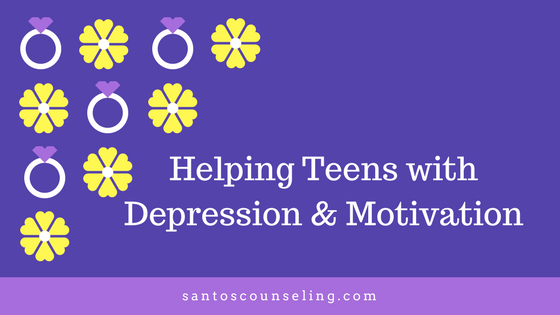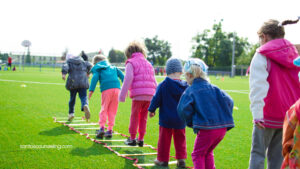Helping teens understand how to deal with depression
The list can be very lengthy with respect to “dealing with depression”. One of my favorite terms to utilize with my counseling client at Santos Counseling is GRIT.
Practicing GRIT effectively means being driven, determined, and willing to overcome challenges and adversity. GRIT is independent of talent or IQ level and more focused on skill-based development.
If possible take time to understand and practice it. Later, focus on awareness and understanding. One can work on “dealing with depression” by:
- Understanding their personal definition of depression
- Identifying triggers that cause symptoms associated to depression. The symptoms may include: problems focusing, feeling irritable, difficulty making decisions, feeling overly tired, sadness and/or crying.
- Identifying the physiological and psychological changes that take place when triggered
- Creating coping skills
- Understanding the impact of practicing the coping skills
Depression can come back. Anxiety can come back. It’s fair to say that a person can suffer from a skin rash more than once in their life. One may understand depression by focusing on the catalyst. The triggers that wake-up depression (i.e. make depression come back).
Triggers can vary from a rainy day to an impactful event such as a loss in the family or moving to a new location. Creating awareness of the return of “depression”, is just the start. Next, is to put on your gloves and start challenging the symptoms of depression.
Create a giant bucket list of tools aimed to overcome depression symptoms. Tools can be the following coping skill:
- Deep breathing
- Watching a funny movie
- Going for a walk
- Taking a shower
- Spending time with peers.
How to find motivation while taking on depression?
Finding motivation can be difficult if the task is associated to an extrinsic factor(s) versus intrinsic one. I like the idea of creating systems. For instance, having a system focused on completing assignments in a manner that is.:
- Organized
- Has added value
- Has a support network system
Systems that are organized and properly structured allow a person to have the peace of mind to follow directions without feeling overwhelmed or consumed with multitasking. A simple example of this would be to organize the tasks for school projects using a calendar on your phone and utilizing the reminder setting to increase the likelihood of engaging in the task.
When a person associates a positive value to a task, they are often more willing to engage in the task and effectively complete it. Teens can work to increase value per specific task as a goal to improve success.
I personally, love spending time writing while not so much enjoying the task of cycling. To promote value, I utilize my current and future wellness. Meaning that if I complete either task, I will grow healthier. This aids my principle of value. Lastly, having a support system can go a very long way. I have a peer that I go running with. It’s fair to say that without the support of my peer, I may be less inclined to engage in the task. Having someone to help can truly go a long way.





